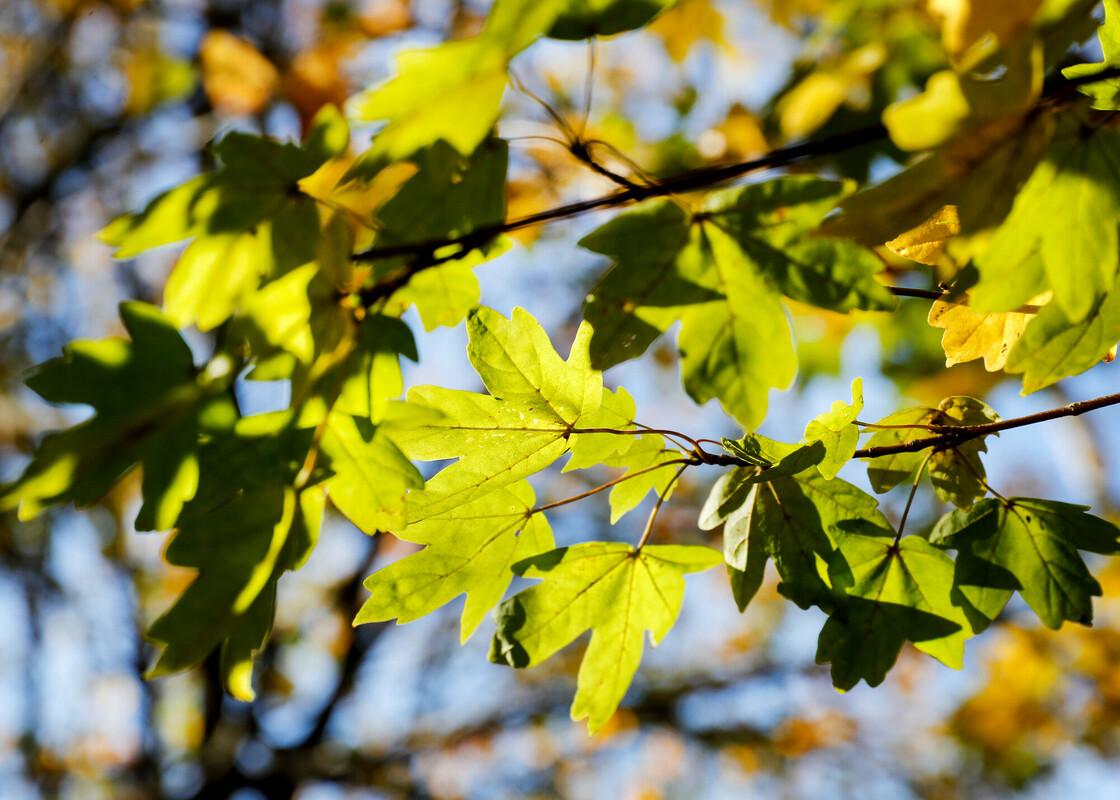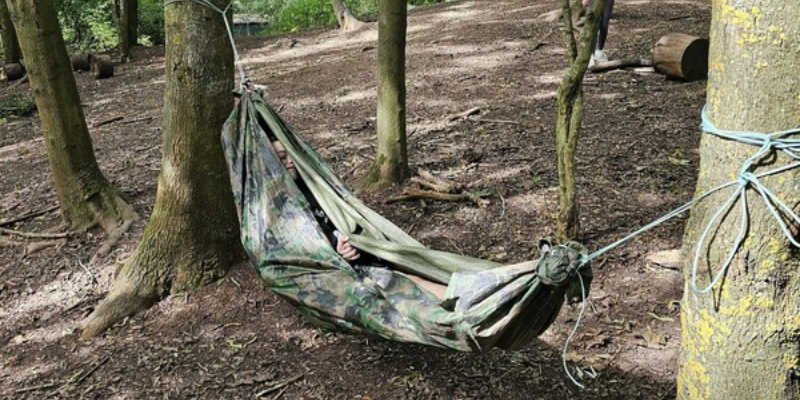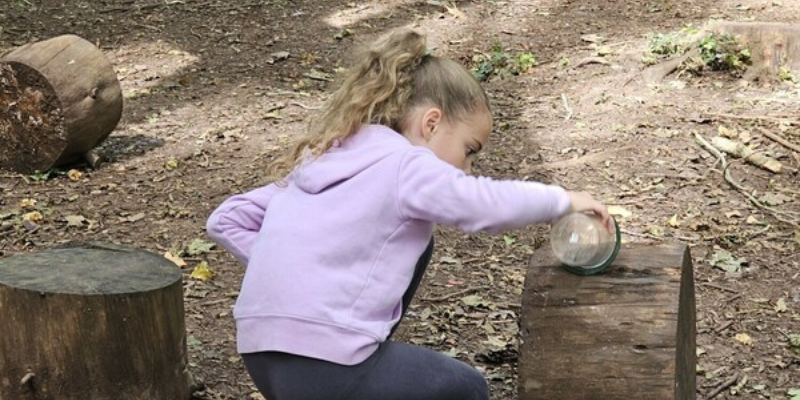
Feeling calm in a busy world
In an age where stress, anxiety, and depression are at an all-time high, the solution to better mental health might be just a few steps outside your front door. As modern life accelerates and digital demands mount, reconnecting with green spaces isn’t just a luxury - it’s becoming a lifeline.
Mounting global research now shows that spending time in nature doesn't just feel good – it is good for us, physically and emotionally. From calming a racing mind to supporting children with special educational needs, the natural world offers powerful tools for emotional regulation and wellbeing.
Green spaces decrease stress, anxiety, and depression
In current affairs, mental wellbeing is a big topic on everybody’s minds, with an estimated 1 in 6 people in England alone experiencing symptoms of mental health issues such as anxiety and depression (World Health Organization (WHO)). The mental health pandemic is on a global scale, with significant mental health needs not being met worldwide. Now, with many countries citing a mental health crisis globally, there is a push to research ways to improve mental wellbeing, with the outdoors and spending time in nature being some of the most effective.
Evidence suggests that exposure to natural environments such as forests and green areas is often linked to a decrease in stress, anxiety, and depression and contributes to improved emotional well-being (M, Rodriguez, 2024).
With science stating that hugging a tree for just 20 seconds can increase the oxytocin levels in the body, the hormone that is responsible for feelings of calm and emotional bonding, something as simple as embracing a tree can boost your overall wellbeing.
Emotional regulation and a specific link to Special Educational Needs and disabilities (SEND)
In the last decade, there has been significant research developments on how emotions are linked to determining mental health and well-being. With Pandey & Choubey (2010) writing the role of emotions and emotional experiences in determining mental health, which are subjective to the well-being of an individual.
Research has proven that the dysregulation of emotions can have several negative impacts on an individual’s health, such as in daily life, social relationships, and academic performance, which can then result in wider mental health problems.
Research has also found that nature connection can be an especially powerful tool for helping children and young people with special educational needs and disabilities (SEND) to regulate their emotions and foster development. The tranquillity of nature provides sensory stimulation that can help with cognitive development and increase levels of self-awareness. It can also help to soothe and reduce stress by providing a sense of peace and calm. Being outside in fresh air and the sun helps to boost immunity, and doing regular physical activity can promote good health and physical fitness.
Nature can often provide children and young people with more shared experiences, therefore creating more social interaction and a sense of belonging that is often missing for some children. Green spaces are wonderful places for sparking the imagination and encouraging the creative juices to flow. Activities like creating a hammock in the trees and canopy gazing can work to create a relaxing and soothing space that allows the individual to regulate their emotions and engage with their surroundings.

Due to the research findings, now more than ever people are being encouraged to get outside in green spaces and spend more time connecting with nature, to reduce stress, help with relaxation, and encourage a more positive emotional mindset.
Nature connection
Nature connection refers to our relationship with the natural world, encompassing how we think, feel, and experience it. It explores our emotional response to nature and how we explore. It also gives us a belief that we are part of nature and therefore encourages positive feelings and behaviours towards the natural world.

Research by the National Trust and Derby University developed the ‘five ways to mental well-being’, after research found that nature or the outdoors was mentioned very little in the mental health guidelines, despite lots of research showing how much good it does us. Nature connection activities don’t have to be complicated; they can be simple ideas like sitting quietly in a wood and seeing how many different natural sounds you can hear, or going on a scavenger hunt.
Emotional regulation
The term emotional regulation is the ability for a person to manage and control their emotional response to a scenario. It often involves strategies to cope with situations that can be challenging and therefore allows them to modulate their emotional reactions.
Sometimes individuals can struggle to effectively regulate their emotions, causing emotional dysregulation, which is generally more common in people with special educational needs and disabilities (SEND). Struggling to regulate emotions can result in intense emotional reactions, and it is often harder to control strong impulses.
The eight senses play a pivotal role in providing our brains with important information about our bodies and the external environment. Which in turn helps the body to understand and respond to internal and external cues, which ultimately influences our emotions.

Our Forest approach
In the learning and skills team at the Heart of England Forest, we work with schools on a long-term basis rather than offering one-off visits. This is because evidence suggests that learning outside the classroom improves academic attainment and personal, social, and emotional development alongside engaging with the environment.
We also incorporate a nature connection activity into our sessions to explore nature and provide long-lasting memories. By doing this, we hope to foster a positive relationship with the environment and create a future generation that will look after nature.
We use the five pathways to nature connection as a guideline to plan in these activities, which could be something as simple as sitting quietly and seeing how many different bird songs you can hear or rolling down a hill.
As part of our school programme, we work with several SEN schools and incorporate emotional regulation tools into these sessions to help regulate anxiety and allow them to better explore their environment. We have hammocks in the trees for swaying, a slackline between two trees to focus individuals and lower tension. Having quiet dens where individuals can go to be away from the group and have some time to decompress.
We have also incorporated a sensory backpack into sessions. The bag is a see-through rucksack that contains natural fidget toys (bark/pet rock), sunglasses and ear defenders for reducing sensory overload, a book about bugs and colouring to help focus and relax. We keep the bag contents as natural as possible to keep the link with the Forest alive, and it is kept in a central space in the woods so that students can access its contents when needed.
We plan to continue keep evolving our formal and informal learning sessions to include activities based around nature connection and emotional regulation strategies to help benefit more children and young people.
A Forest for you
As someone lucky enough to work in this beautiful landscape every day, I see first hand how nature can transform our mood, mindset, and sense of connection. At the Heart of England Forest, we’re not just planting trees - we’re creating a space where people of all ages can nurture their mental and physical wellbeing.
For little explorers
Our monthly Mini Foresters club is a chance for children aged 4 - 11 years and their grown-ups to play, learn, and discover the joy of the outdoors together. It’s all about shared experiences and quality time - something we could all use more of.
For teens seeking adventure
Our Young Foresters club gives young people aged 11 - 18 years a hands-on way to connect with nature, try new things, and make meaningful friendships.
For adults craving calm or creativity
Whether it’s a mindful walk, a creative workshop, our Forest events offer a chance to slow down and recharge.
Can’t make it to the Forest?
No problem. You can still soak up the sights and sounds from wherever you are – just hop over to our YouTube channel for a virtual breath of fresh air.
This Mental Health Awareness Week, why not take a moment for yourself – in the Forest or wherever you find peace? Nature is waiting, and you’re always welcome here.



